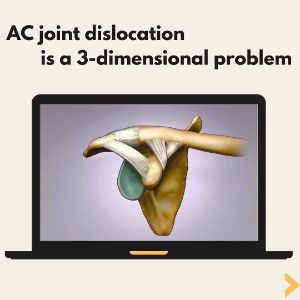Instability in the shoulder is often unpredictable, leaving sufferers worrying about sudden dislocation. The end of the humerus may separate from the glenoid, which are the ball and socket of the shoulder joint. This can be a partial dislocation (subluxation), or a full separation (dislocation).
You may suspect shoulder instability if the joint hurts when performing particular movements. If the shoulder also regularly grinds or pops, you should consult with Dr. Steve Struhl in New York. Other symptoms to look for include inflammation or bruising around the joint when a suspected partial dislocation occurs.
Full dislocation of the shoulder is typically visible as the ball and socket are separated. You may experience complete loss of movement in the joint. Some patients also report numbness or paralysis when the joint is dislocated. This is due to compression on surrounding nerves and blood vessels.
Causes of Shoulder Instability
Suffering an injury to the shoulder joint can lead to instability. Athletes who extend or rotate the arms repetitively are more susceptible to this type of injury. In other cases, shoulder ligaments can become stretched or the capsule enlarged.
As with all injuries, Dr. Struhl will endeavor to provide conservative treatment. The goal of non-surgical therapies is to make the shoulder joint stable, strong and capable of a full range of movements. A procedure known as a closed reduction is used to relocate the joint under anesthetic. In other cases, or in combination with a reduction, you may need medication and are advised to rest the shoulder until a full recovery.
Unfortunately, conservative treatment is not always recommended or successful for shoulder instability and dislocation. Surgery to stabilize the joint is the next option. Arthroscopic surgery is the preferred approach, as incisions are smaller and recovery may take less time. However, this option is not suitable for every patient. Dr. Struhl may recommend a more complex surgery to improve outcomes.
To determine your treatment needs, Dr. Steve Struhl will invite you to a consultation in New York. During this appointment he will conduct an examination of the joint and determine the extent of shoulder instability. Once your consultation is concluded, appropriate treatment plans are recommended.
If you would like an appointment with Dr. Steve Struhl, call his New York offices today at (212) 207 1986 (New York), or (914) 328-4111 (Westchester).
Posted on behalf of Steven Struhl MD





